At every fair, theme park, or even the snack shack at the local pool, businesses are promoting ice slushies to children of all ages. But it’s become apparent that these summertime treats are actually quite dangerous.
Two young children were hospitalized in the UK this year after drinking a slushie, and parents and doctors around the world are calling for change, including a warning label on the drinks and even a minimum age for consumption.
What’s in a Slushie?
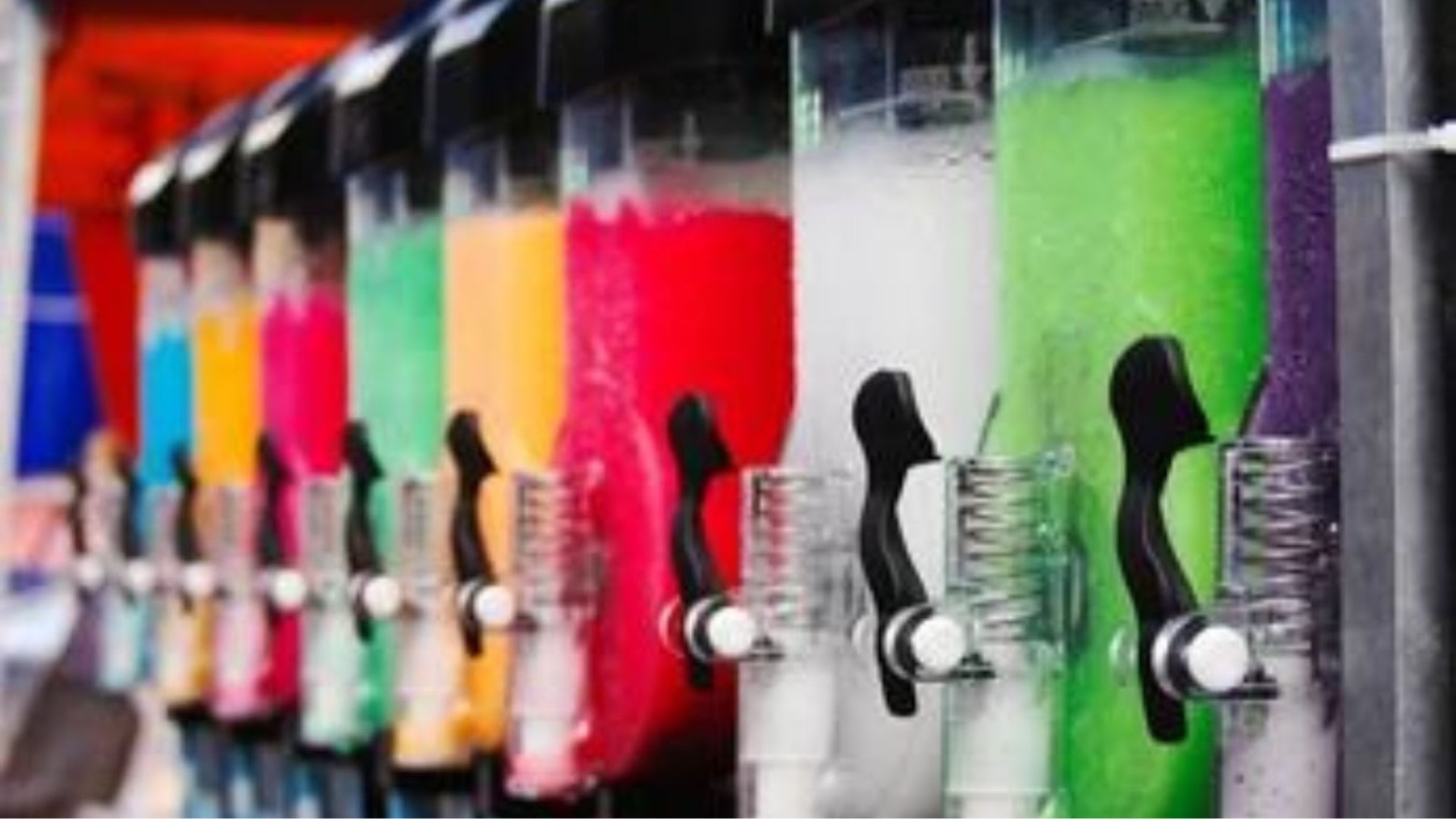
The first thing to understand about slushies is that while, technically, they are just made from ice and flavored syrup, that syrup is absolutely packed with harmful amounts of both sugar and glycerol.
The majority of people understand that these drinks have excess sugar, but they’re willing to let their kids have a special treat on a day out. However, once learning just how much sugar they contain, it’s hard to imagine letting anyone you love drink one.
How Much Sugar Is in a Slushie?
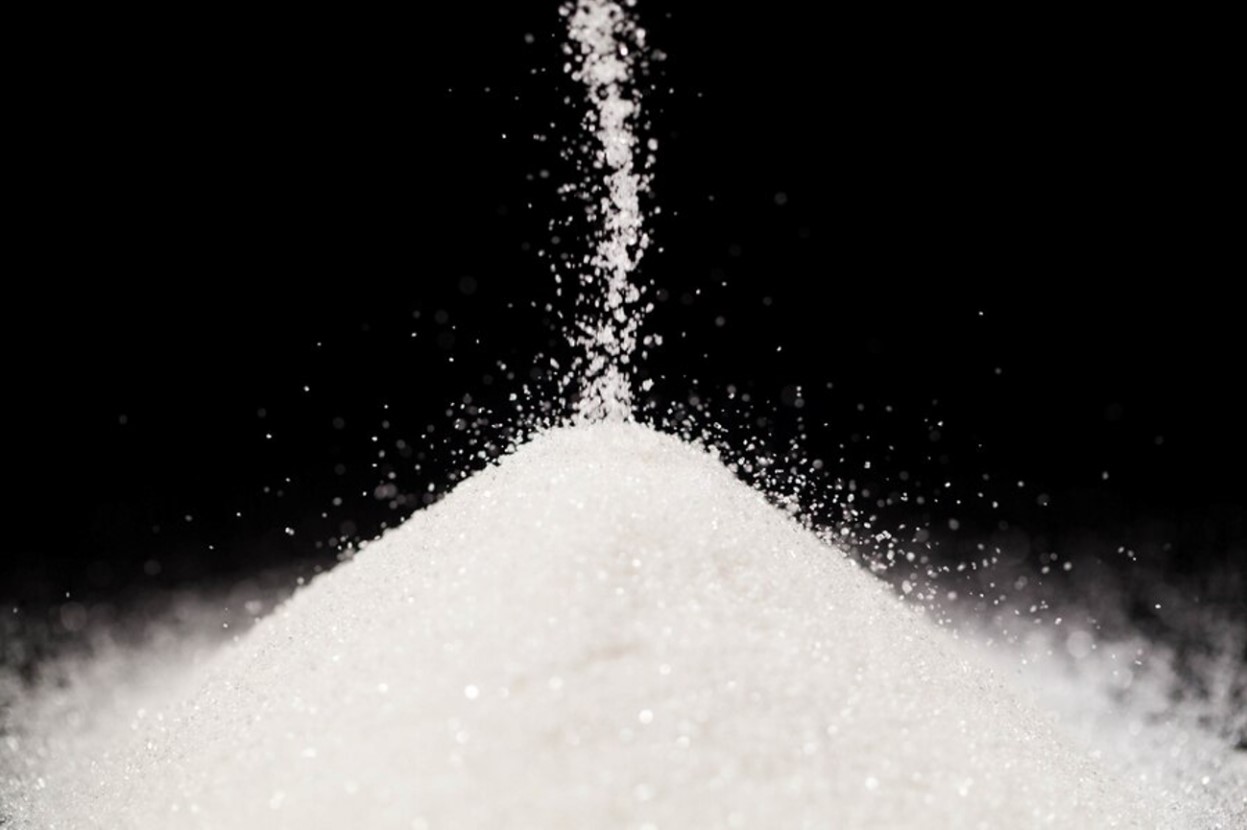
Popular American convenience store Cumberland Farms is famous for its “Chill Zone” slushies. Similar to those sold at theme parks and fairs, their slushies come in every flavor you can imagine and are jam-packed with sugar.
In fact, a 30 oz Cotton Candy Commander is technically only 225 calories, but it has 50 grams of sugar in it.
How Much Sugar Is Recommended Per Day for Children?
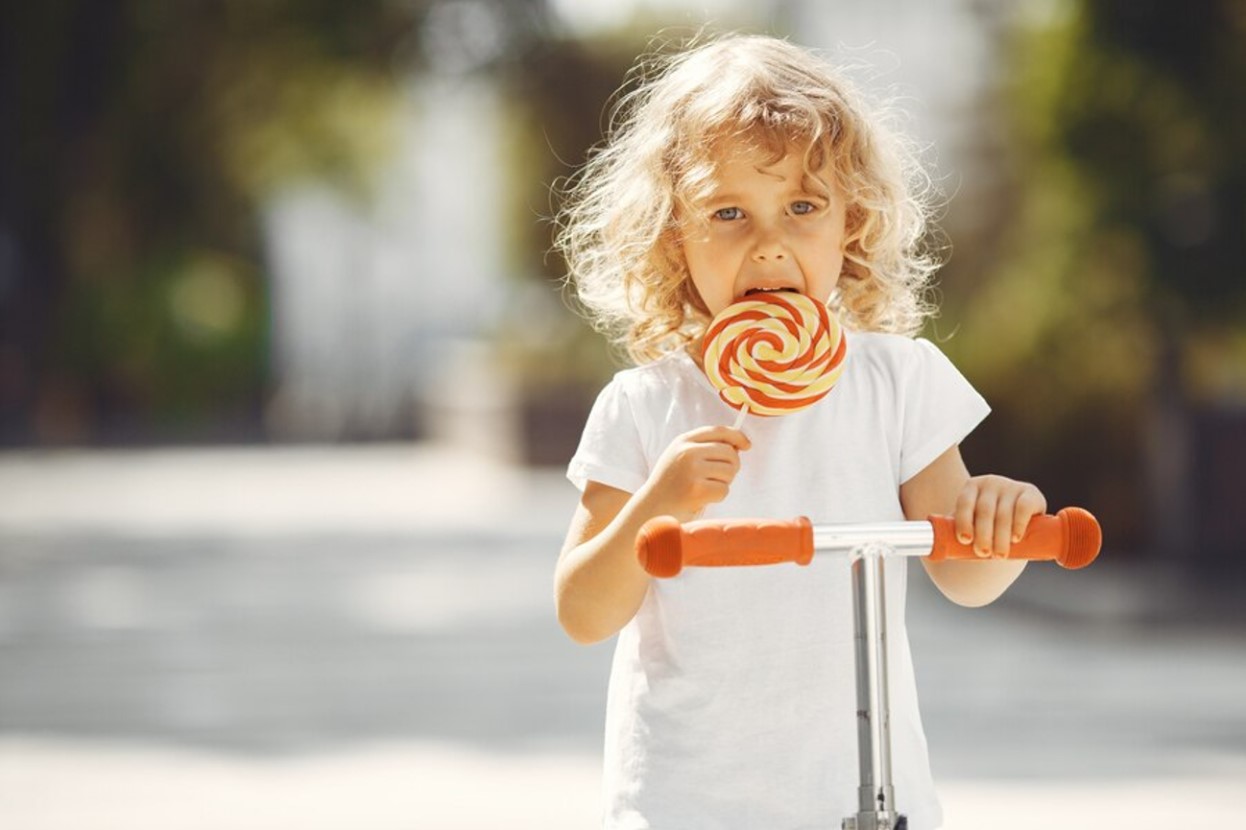
Now, 60 grams or ¾ of a cup of sugar is a lot by any standard, but for children, it’s an obscene amount.
Doctors recommend that children ages 2 through 18 only consume a total of 25 grams of sugar per day. So, that means one slushie is more than double the maximum sugar intake for any child or teen.
Let’s Talk about Glycerol
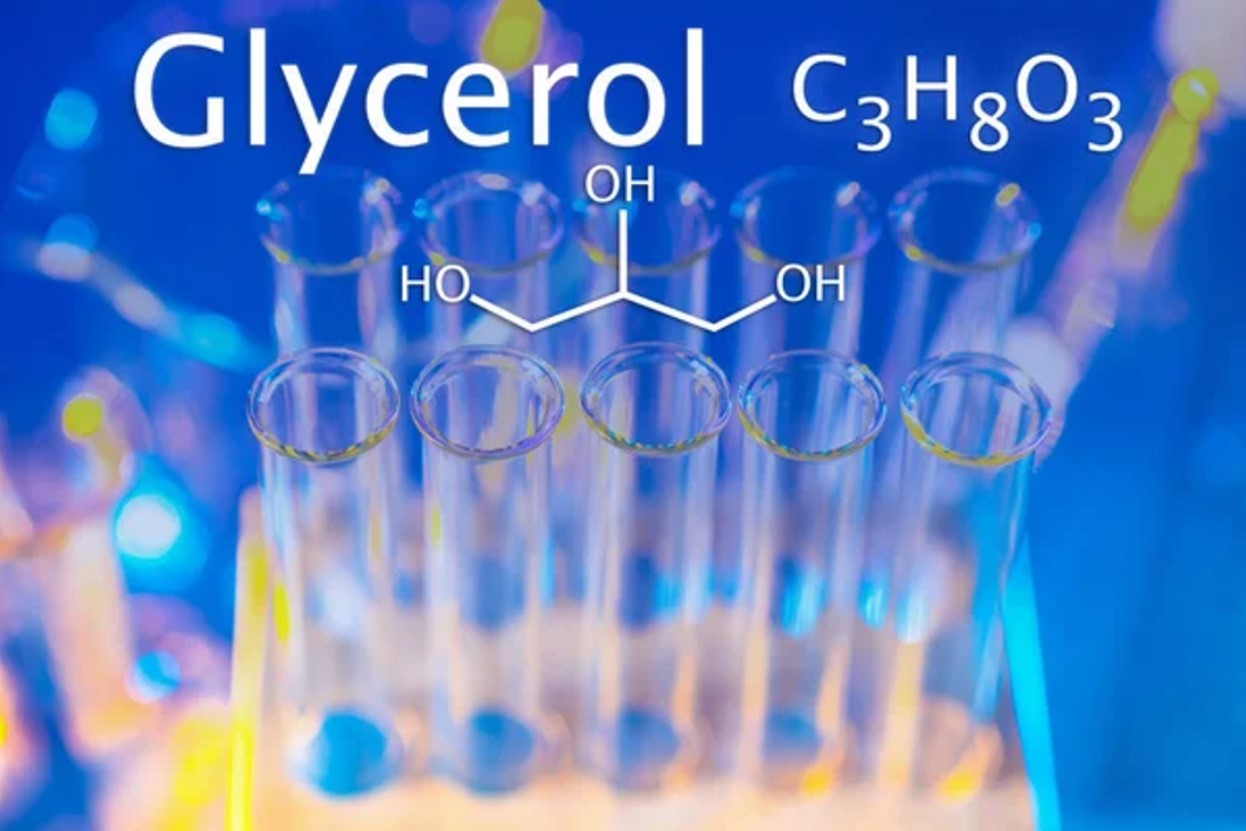
Everyone knows that excessive sugar is bad for the body, but what people don’t realize is that sugar isn’t the only dangerous ingredient in slushies.
It’s also chock full of Glycerol (E422), which gives it that “slushy” effect. Glycerol is a chemical sweetener that can lead to headaches, stomach, nausea, and even hyper-dehydration.
Slushies Are Extremely Dehydrating
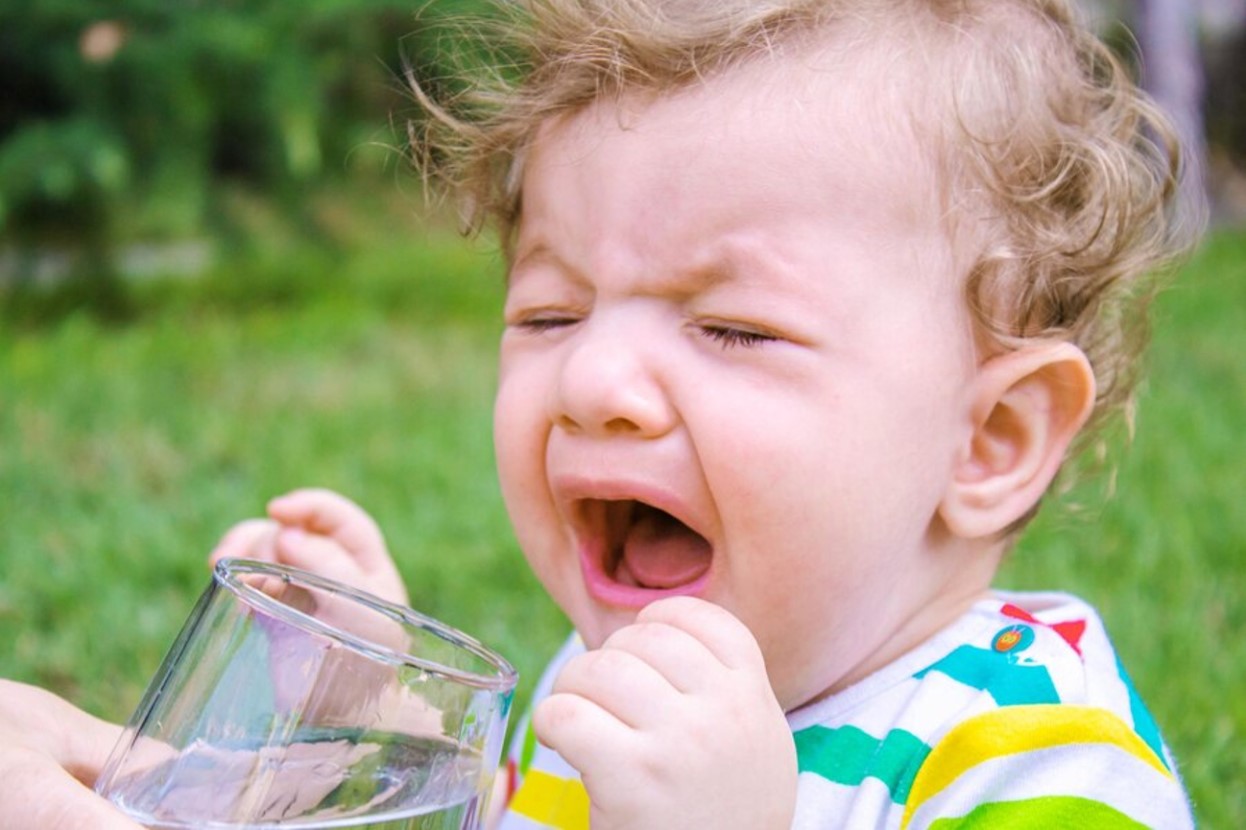
Because of the glycerol, as well as the excessive sugar, slushies are wildly dehydrating. Which means that if a child consumes a slushie on a day out, they need to drink even more water than they normally would to combat the dehydrating effects.
And as most parents understand, getting a kid to drink a large cup of water directly after drinking an entire slushie is a near-impossible task.
Are Slushies Safe for Adults?

It’s crucial to understand that when adults consume slushies, they have all the same negative effects as they do when children drink them.
But that being said, adult bodies are larger and can handle more toxins. As well, adults typically understand the need to rehydrate and moderate their sugar intake. So, while slushies are still bad for adults, they’re not necessarily as dangerous.
Two Young Children in the UK Were Hospitalized After Drinking a Slushie

Sadly, two young children, Albie Pegg and Angus Anderson, collapsed immediately after drinking a slushie in the UK this year. One even suffered extreme hallucinations and the other was completely unconscious.
They both had to be rushed to nearby hospitals and almost died as a result. The doctors reported that the children had suffered from glycerol toxicity from drinking the “treats” too fast.
Risks Involved with Drinking Slushies
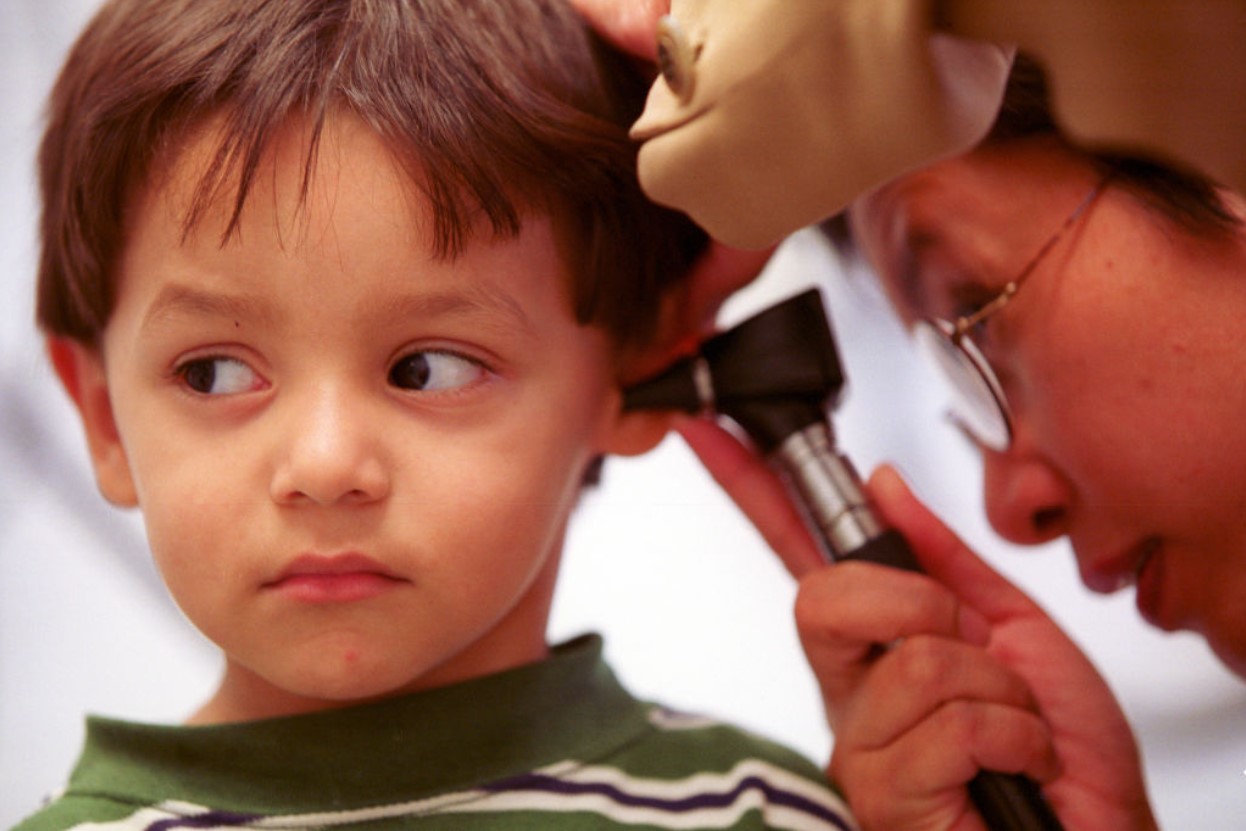
Of course, hallucinations and falling unconscious are extreme symptoms of glycerol toxicity, which the vast majority of kids don’t experience after drinking a slushie.
However, that doesn’t mean they are not still affecting their bodies. Kids who drink slushies can suffer from dehydration, stomach issues, headaches, dental cavities, and even chronic health issues over time, such as obesity, hypoglycemia, and Type 2 diabetes.
Parents Around the World Are Calling for Warning Labels on Slushies
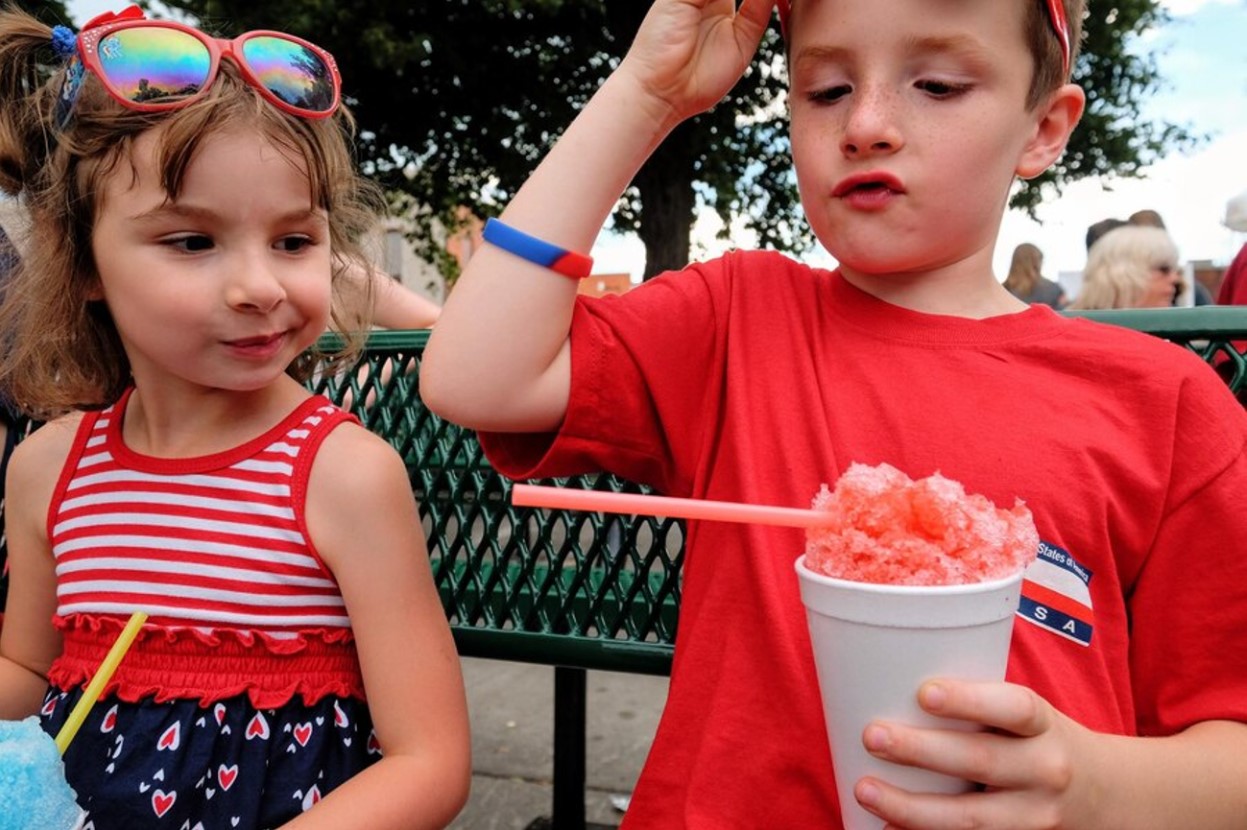
Every parent around the world wants to keep their children safe and healthy. But it’s hard to do so when they don’t know just how dangerous some things, such as slushies, actually are.
Therefore, parents and doctors are calling for a change. They want the slushies to come with a warning label that explains the dangers of glycerol and even a minimum age of consumption.
How Young Is Too Young for a Slushie?
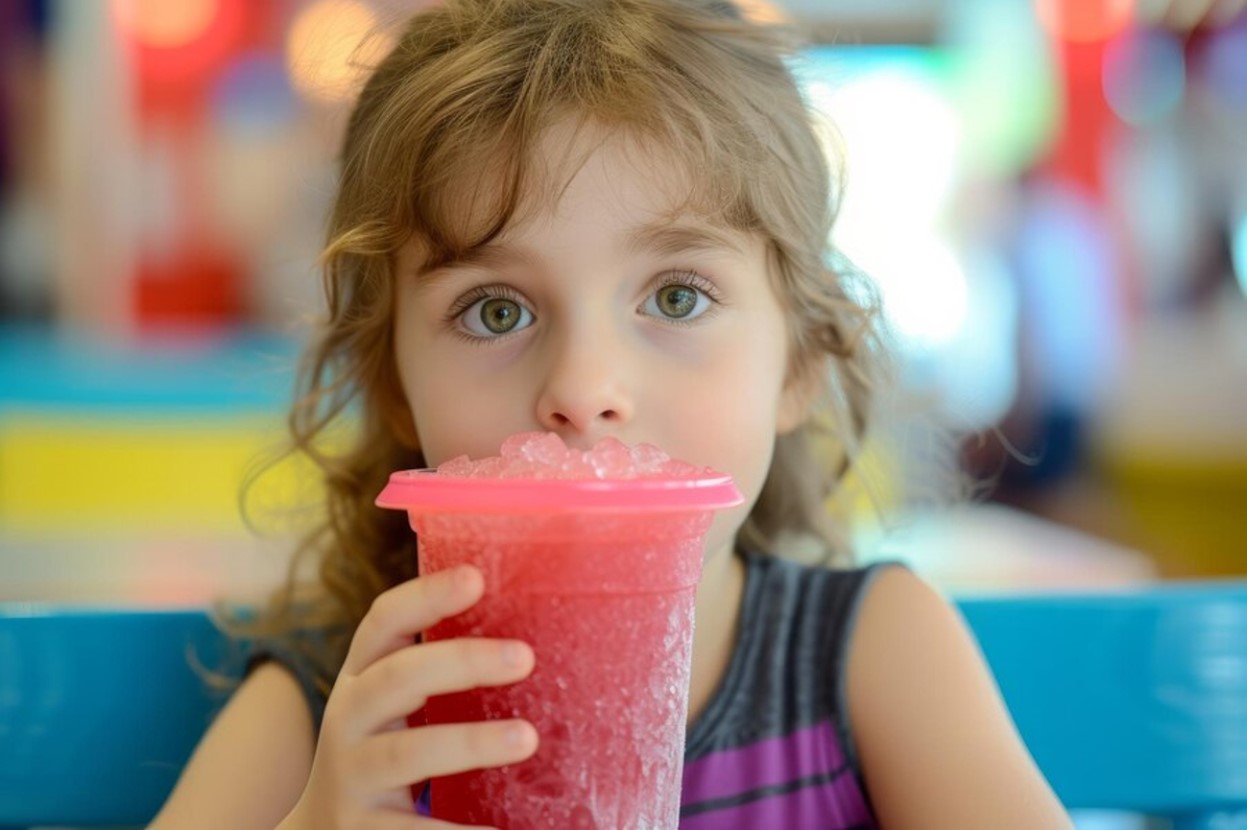
While some are arguing that kids under 4 years old shouldn’t be allowed these sugary drinks, others say they aren’t safe for anyone under the age of 10.
Ms. Anderson, the mother of one of the children hospitalized, said, “I think slushies should be banned altogether.”
Skip the Glycerol on the Next Fun Day Out

Unfortunately, slushies aren’t the only popular kids treat that contains Glycerol. Cotton candy, marshmallows, and gummy candies all have it as well, though in much smaller doses than a slushie.
But just to be safe, it’s best to avoid any products that contain glycerol until they are at least 4 years old. And you might want to take slushies off the menu altogether.








































